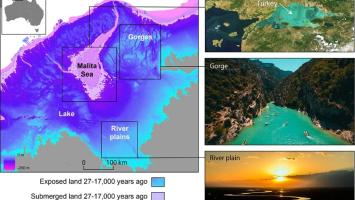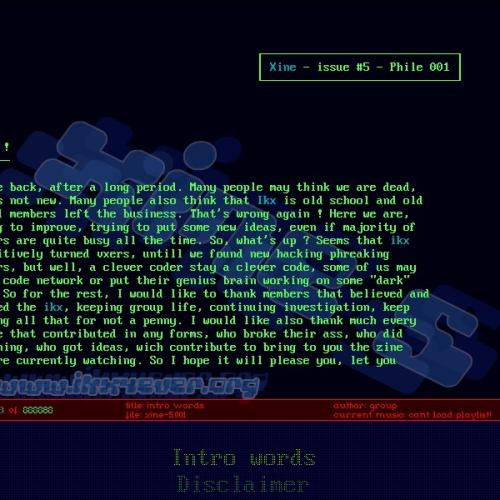Copy Link
Add to Bookmark
Report
AIList Digest Volume 1 Issue 072

AIList Digest Monday, 10 Oct 1983 Volume 1 : Issue 72
Today's Topics:
Administrivia - AIList Archives,
Music & AI - Request,
NL - Semantic Chart Parsing & Simple English Grammar,
AI Journals - Address of "Artificial Intelligence",
Alert - IEEE Computer Issue,
Seminars - Stanfill at Univ. of Maryland, Zadeh at Stanford,
Commonsense Reasoning
----------------------------------------------------------------------
Date: Sun 9 Oct 83 18:03:24-PDT
From: Ken Laws <Laws@SRI-AI.ARPA>
Reply-to: AIList-Request@SRI-AI
Subject: AIList Archives
The archives have grown to the point that I can no longer
keep them available online. I will keep the last three month's
issues available in <ailist>archive.txt on SRI-AI. Preceding
issues will be backed up on tape, and will require about a
day's notice to recover. The tape archive will consist of
quarterly composites (or smaller groupings, if digest activity
gets any higher than it has been). The file names will be of
the form AIL1N1.TXT, AIL1N19.TXT, etc. All archives will be in
the MMAILR mailer format.
The online archive may be obtained via FTP using anonymous login.
Since a quarterly archive can be very large (up to 300 disk pages)
it will usually be better to ask me for particuar issues than to
FTP the whole file.
-- Ken Laws
------------------------------
Date: Thu, 25 Aug 83 00:07:53 PDT
From: uw-beaver!utcsrgv!nixon@LBL-CSAM
Subject: AIList Archive- Univ. of Toronto
[I previously put out a request for online archives that could
be obtained by anonymous FTP. There were very few responses.
Perhaps this one will be of use. -- KIL]
Dear Ken,
Copies of the AIList Digest are kept in directory /u5/nixon/AIList
with file names V1.5, V1.40, etc. Our uucp site name is "utcsrgv".
This is subject to change in the very near future as the AI group at the
University of Toronto will be moving to a new computer.
Brian Nixon.
------------------------------
Date: 4 Oct 83 9:23:38-PDT (Tue)
From: hplabs!hao!cires!nbires!ut-sally!riddle @ Ucb-Vax
Subject: Re: Music & AI, pointers wanted
Article-I.D.: ut-sally.86
How about posting the results of the music/ai poll to the net? There
have been at least two similar queries in recent memory, indicating at
least a bit of general interest.
[...]
-- Prentiss Riddle
{ihnp4,kpno,ctvax}!ut-sally!riddle
riddle@ut-sally.UUCP
------------------------------
Date: 5 Oct 83 19:54:32-PDT (Wed)
From: pur-ee!uiucdcs!uicsl!dinitz @ Ucb-Vax
Subject: Re: Re: NL argument between STLH and Per - (nf)
Article-I.D.: uiucdcs.3132
I've heard of "syntactic chart parsing," but what is "semantic chart
parsing?" It sounds interesting, and I'd like to hear about it.
I'm also interested in seeing your paper. Please make arrangements with me
via net mail.
Rick Dinitz
U. of Illinois
...!uicsl!dinitz
------------------------------
Date: 3 Oct 83 18:39:00-PDT (Mon)
From: pur-ee!ecn-ec.davy @ Ucb-Vax
Subject: WANTED: Simple English Grammar - (nf)
Article-I.D.: ecn-ec.1173
Hello,
I am looking for a SIMPLE set of grammar rules for English. To
be specific, I'm looking for something of the form:
SENT = NP + VP ...
NP = DET + ADJ + N ...
VP = ADV + V + DOBJ ...
etc.
I would prefer a short set of rules, something on the order of one or two
hundred lines. I realize that this isn't enough to cover the whole English
language, I don't want it to. I just want something which could handle
"simple" sentences, such as "The cat chased the mouse", etc. I would like
to have rules for questions included, so that something like "What does a
hen weigh?" can be covered.
I've scoured our libraries here, and have only found one book with
a grammar for English in it, and it's much more complex than what I want.
Any pointers to books/magazines or grammars themselves would be greatly
appreciated.
Thanks in advance (as the saying goes)
--Dave Curry
decvax!pur-ee!davy
eevax.davy@purdue
------------------------------
Date: 6 Oct 83 17:21:29-PDT (Thu)
From: ihnp4!cbosgd!cbscd5!lvc @ Ucb-Vax
Subject: Address of "Artificial Intelligence"
Article-I.D.: cbscd5.739
Here is the address of "Artificial Intelligence" if anyone is interested:
Artificial Intelligence (bi-monthly $136 -- Ouch !)
North-Holland Publishing Co.,
Box 211, 1000 AE
Amsterdam, Netherlands.
Editors D.G. Bobrow, P.J. Hayes
Advertising, book reviews, circulation 1,100
Also avail. in microform from
Microforms International Marketing Co.
Maxwell House
Fairview Park
Elmsford NY 10523
Indexed: Curr. Cont.
Larry Cipriani
cbosgd!cbscd5!lvc
[There is a reduced rate for members of AAAI. -- KIL]
------------------------------
Date: Sun 9 Oct 83 17:45:52-PDT
From: Ken Laws <Laws@SRI-AI.ARPA>
Subject: IEEE Computer Issue
Don't miss the October 1983 issue of IEEE Computer. It is a
special issue on knowledge representation, and includes articles
on learning, logic, and other related topics. There is also a
short list of 30 expert system on p. 141.
------------------------------
Date: 8 Oct 83 04:18:04 EDT (Sat)
From: Bruce Israel <israel%umcp-cs@UDel-Relay>
Subject: University of Maryland AI talk
[Reprinted from the University of Maryland BBoard]
The University of Maryland Computer Science Dept. is starting an
informal AI seminar, meeting every other Thursday in Room 2330,
Computer Science Bldg, at 5pm.
The first meeting will be held Thursday, October 13. All are welcome
to attend. The abstract for the talk follows.
MAL: My AI Language
Craig Stanfill
Department of Computer Science
University of Maryland
College Park, MD 20742
In the course of writing my thesis, I implemented an AI language, called
MAL, for manipulating symbolic expressions. MAL runs in the University of
Maryland Franz Lisp Environment on a VAX 11/780 under Berkely Unix (tm) 4.1.
MAL is of potential benefit in knowledge representation research, where it
allows the development and testing of knowledge representations without build-
ing an inference engine from scratch, and in AI education, where it should
allow students to experiment with a simple AI programming language. MAL pro-
vides for:
1. The representation of objects and queries as symbolic expressions.
Objects are recursively constructed from sets, lists, and bags of atoms
(as in QLISP). A powerful and efficient pattern matcher is provided.
2. The rule-directed simplification of expressions. Limited facilities for
depth first search are provided.
3. Access to a database. Rules can assert and fetch simplifications of
expressions. The database also employs a truth maintenance system.
4. The construction of large AI systems by the combination of simpler modules
called domains. For each domain, there is a database, a set of rules, and
a set of links to other domains.
5. A set of domains which are generally useful, especially for spatial rea-
soning. This includes domains for solid and linear geometry, and for
algebra.
6. Facilities which allow the user to customize MAL (to a degree). Calls to
arbitrary LISP functions are supported, allowing the language to be easily
extended.
------------------------------
Date: Thu 6 Oct 83 20:18:09-PDT
From: Doug Lenat <LENAT@SU-SCORE.ARPA>
Subject: Colloquium Oct 11: ZADEH
[Reprinted from the SU-SCORE bboard.]
Professor Lotfi Zadeh, of UCB, will be giving the CS colloquium this
Tuesday (10/11). As usual, it will be in Terman Auditorium, at 4:15
(preceded at 3:45 by refreshments in the 3rd floor lounge of Margaret
Jacks Hall).
The title and abstract for the colloquium are as follows:
Reasoning With Commonsense Knowledge
Commonsense knowledge is exemplified by "Glass is brittle," "Cold is
infectious," "The rich are conservative," "If a car is old, it is
unlikely to be in good shape," etc. Such knowledge forms the basis
for most of human reasoning in everyday situations.
Given the pervasiveness of commonsense reasoning, a question which
begs for answer is: Why is commonsense reasoning a neglected area in
classical logic? Because, almost by definition, commonsense
knowledge is that knowledge which is not representable as a
collection of well-formed formulae in predicate logic or other
logical systems which have the same basic conceptual structure as
predicate logic.
The approach to commonsense reasoning which is described in the talk
is based on the use of fuzzy logic -- a logic which allows the use of
fuzzy predicates, fuzzy quantifiers and fuzzy truth-values. In this
logic, commonsense knowledge is defined to be a collection of
dispositions, that is propositions with suppressed fuzzy quantifiers.
To infer from such knowledge, three basic syllogisms are developed:
(1) the intersection/product syllogism; (2) the consequent
conjunction syllogism; and (3) the antecedent conjunction syllogism.
The use of these syllogisms in commonsense reasoning and their
application to the combination of evidence in expert systems is
discussed and illustrated by examples.
------------------------------
Date: Fri 7 Oct 83 09:42:30-PDT
From: Christopher Schmidt <SCHMIDT@SUMEX-AIM>
Subject: "rich" = "conservative" ?
[Reprinted from the SU-SCORE bboard.]
Subject: Colloquium Oct 11: ZADEH
The title and abstract for the colloquium are as follows:
Reasoning With Commonsense Knowledge
I don't think I've seen flames in response to abstracts before, but I get
so sick of hearing "rich," "conservative," and "evil" used as synonyms.
Commonsense knowledge is exemplified by [...] "The rich are
conservative," [...].
In fact, in the U.S., 81% of people with incomes over $50,000 are
registered Democrats. Only 47% with incomes under $50,000 are. (The
remaining 53% are made up of "independents," &c..) The Democratic
Party gets the majority of its funding from contributions of over
$1000 apiece. The Republican Party is mostly funded by contributions
of $10 and under. (Note: I'd be the last to equate Conservatism and
the Republican Party. I am a Tory and a Democrat. However, more
"commonsense knowledge" suggests that I can use the word "Republican"
in place of "conservative" for the purpose of refuting the equation
of "rich" and "conservative."
Such knowledge forms the basis for most of human reasoning in everyday
situations.
This statement is so true that it is the reason I gave up political writing.
Given the pervasiveness of commonsense reasoning, a question which
begs for answer is: Why is commonsense reasoning a neglected area in
classical logic? [...]
Perhaps because false premeses tend to give rise to false conclusions? Just
what we need--"ignorant systems." (:-)
--Christopher
------------------------------
Date: Fri 7 Oct 83 10:22:37-PDT
From: Richard Treitel <TREITEL@SUMEX-AIM>
Subject: Re: "rich" = "conservative" ?
[Reprinted from the SU-SCORE bboard.]
Why is logic a neglected area in commonsense reasoning? (to say nothing of
political writing)?
More seriously, or at least more historically, a survey was once taken of
ecological and other pressure groups in England, asking them which had been the
most and least effective methods they had used to convince governmental bodies.
Right at the bottom of the list of "least effective" was Reasoned Argument.
- Richard
------------------------------
Date: Fri, 7 Oct 83 10:36 PDT
From: Vaughan Pratt <pratt@Navajo>
Subject: Reasoned Argument
[Reprinted from the SU-SCORE bboard.]
[...]
I think if "Breathing" had been on the least along with "Reasoned
Argument" then the latter would only have come in second last.
It is not that reasoned argument is ineffective but that it is on
a par with breathing, namely something we do subconsciously. Consciously
performed reasoning is only marginally reliable in mathematical circles,
and quite unreliable in most other areas. It makes most people dizzy,
much as consciously performed breathing does.
-v
------------------------------
End of AIList Digest
********************























